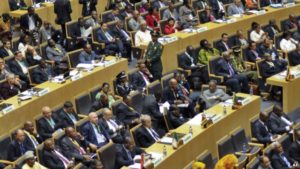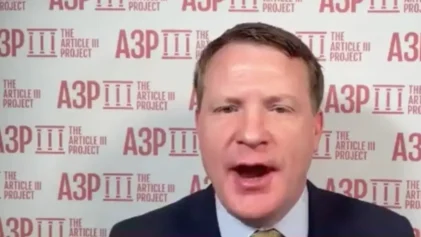
“Women’s empowerment” is what the banners say outside the AU summit venue.
But as usual, conflict – both political and civil – is likely to dominate discussions as African heads of state meet for the twice-yearly summit.
Analysts from the Institute of Security Studies gathered in Johannesburg Tuesday as AU officials met behind closed doors a few blocks away. Analyst Liesl Louw-Vaudran says talk of ongoing conflicts and political standoffs are likely to dominate the event.
“Basically, many of you have attended AU summits before. The theme is often eclipsed by the more urgent peace and security issues,” says Louw-Vaudran.
This year, those include political unrest in Burundi as its longtime president attempts to run for a controversial third term; political and ethnic conflict in the new nation of South Sudan; and the ongoing threat of Boko Haram insurgents in Nigeria.
Add to that the older conflicts in Somalia, which hasn’t had a stable government for more than two decades; eastern Congo, which has been mired in miserable conflict since the 1990s; and the continuing fallout from the 2011 downfall of Libya’s longtime leader.
Analysts note that in recent years, the AU’s Peace and Security Council has evolved into a more powerful organization than it was before and has mobilized faster than ever before to react to conflicts.
Read more at voanews.com


